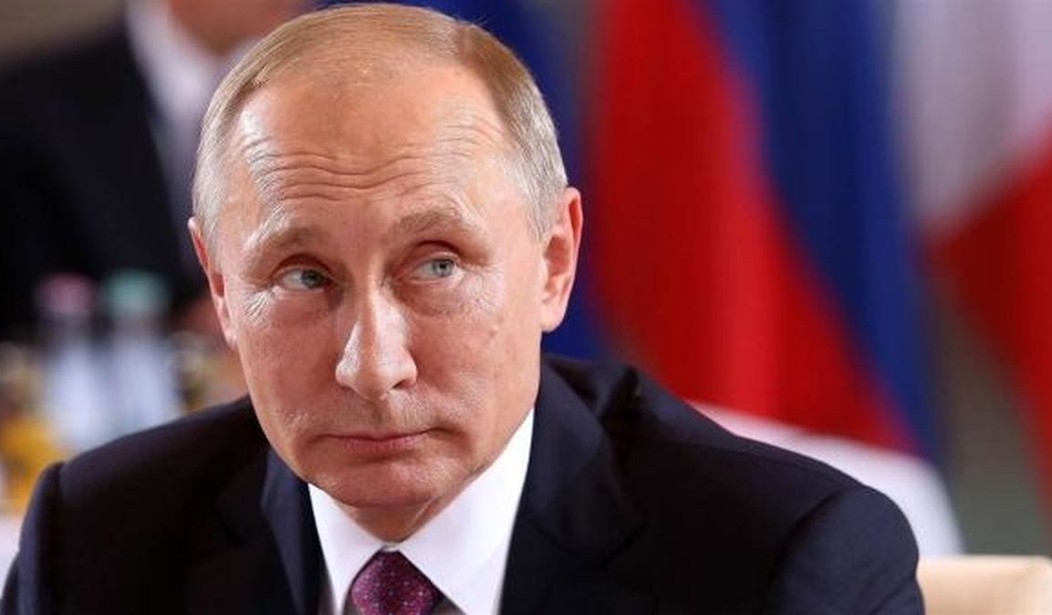The Kremlin denies any deliberate attacks on American forces. The Pentagon says they don’t think the Russian government knew what was going on.
What is clear is that a force made up largely of Russian “mercenaries” and Hezbollah militiamen attacked a military base last week in Deir ez-Zor, where U.S. forces are stationed, and got clobbered as a result. Some estimates place the number of Russian dead at 200. The wounded were flown to military hospitals in Russia.
These Russian “mercenaries” have also shown up in Eastern Ukraine, where nobody believes they are not under the direct control of the Kremlin. They are employed by a secretive Russian company known as Wagner. The company is run by a former high ranking officer in Russian military intelligence and is tied to the oligarch Yevgeny Prigozhin. Prigozhin, known as “Putin’s chef,” was just indicted by special counsel Robert Mueller for his role in financing the Russian information warfare operation against the U.S. last year during the election.
Defense Secretary Mattis may have been forthcoming in his remarks on the incident at Deir Ezzor — or he may not have been.
When reporters asked U.S. Secretary of Defense James Mattis about the incident, he called the whole thing perplexing. “I have no idea why they would attack there, the forces were known to be there, obviously the Russians knew,” he said. “We have always known that there are elements in this very complex battle space that the Russians did not have, I would call it, control of.”
Now, it should be said that Mattis, a retired four-star Marine Corps general, is a very smart man. His perplexity in this case is probably what Plato called a “noble lie,” a falsehood spoken by a leader to achieve a greater social good. If Mattis acknowledges the obvious — that the Kremlin authorized a direct assault on a U.S.-sponsored base by non-uniformed personnel — he risks an escalation spiral in Syria. Better to express bewilderment and give Russian President Vladimir Putin a chance to back down and deny culpability, which he ended up doing despite the heavy casualties suffered by his mercenaries.
When Mattis says that Syria is a “complex battle space,” he is using understatement to its fullest effect. Our ally Turkey is currently tearing up our other allies, the Kurds, in Afrin. The Russians are fighting anyone who threatens Syria’s President Assad, and Hezbollah is doing Iran’s bidding. Add to that literally dozens of militias and terrorist groups all fighting each other to one degree or another, and you see where using the word “complex” just doesn’t cut it.
So how do we know the Russians attacked U.S. forces in Deir ez-Zor deliberately?
“They help Russia obfuscate Russia’s role in Syria,” Matti Suomenaro, a researcher for the Institute for the Study of War told me this week. “In eastern Syria, the Russian Ministry of Defense can say, ‘We don’t know they were doing this.’ But it’s very likely this had some kind of direction from higher-ups in the Kremlin.”
Finally, there is the strategic argument for why Russia would participate in the attack at Deir Ezzor. U.S. policy at the moment is a bit confusing. When Mattis and other U.S. officials publicly discuss the U.S. mission in Syria, they say only that it is to fight the Islamic State. So far, there is no official policy on whether the U.S. military’s role includes countering Russian-Iranian efforts to help the Bashar al-Assad regime retake territory it lost in the civil war.
Add to this the mixed messages sent by the U.S. last month when it failed to stop Turkey from bombing the Kurdish-controlled city of Afrin. While the U.S. has attempted to end the Turkish assault through diplomacy, it has not offered to protect Kurdish fighters aligned with the People’s Protection Group, or YPG, who remain in the city. The YPG are key U.S. partners in the campaign against the Islamic State. Indeed, Kurdish fighters stationed in Deir Ezzor in recent weeks have traveled to Afrin for the fighting, making the enclave a more attractive target for the Russo-Iranian alliance in Syria.
And Putin, one of the best strategic thinkers in the world, wants to know how far he can push the U.S.:
For a cynic like Putin, whose air force has bombed other enclaves of U.S.-supported rebels in Syria, the inability of the U.S. to stop a NATO ally, Turkey, from attacking another ally in Afrin is a sign of weakness. The assault last week on Deir Ezzor with mercenaries was a chance to again probe for a U.S. response.
The Syrian civil war has morphed into a regional conflict. Israel is bombing Syrian targets. Iran is building up its forces to threaten Israel. Turkey is attacking the Kurds. A badly wounded ISIS is at war with everyone. And Russia is intervening wherever it feels it can advance its strategic interests.
The Balkans, 1914 anyone?










Join the conversation as a VIP Member